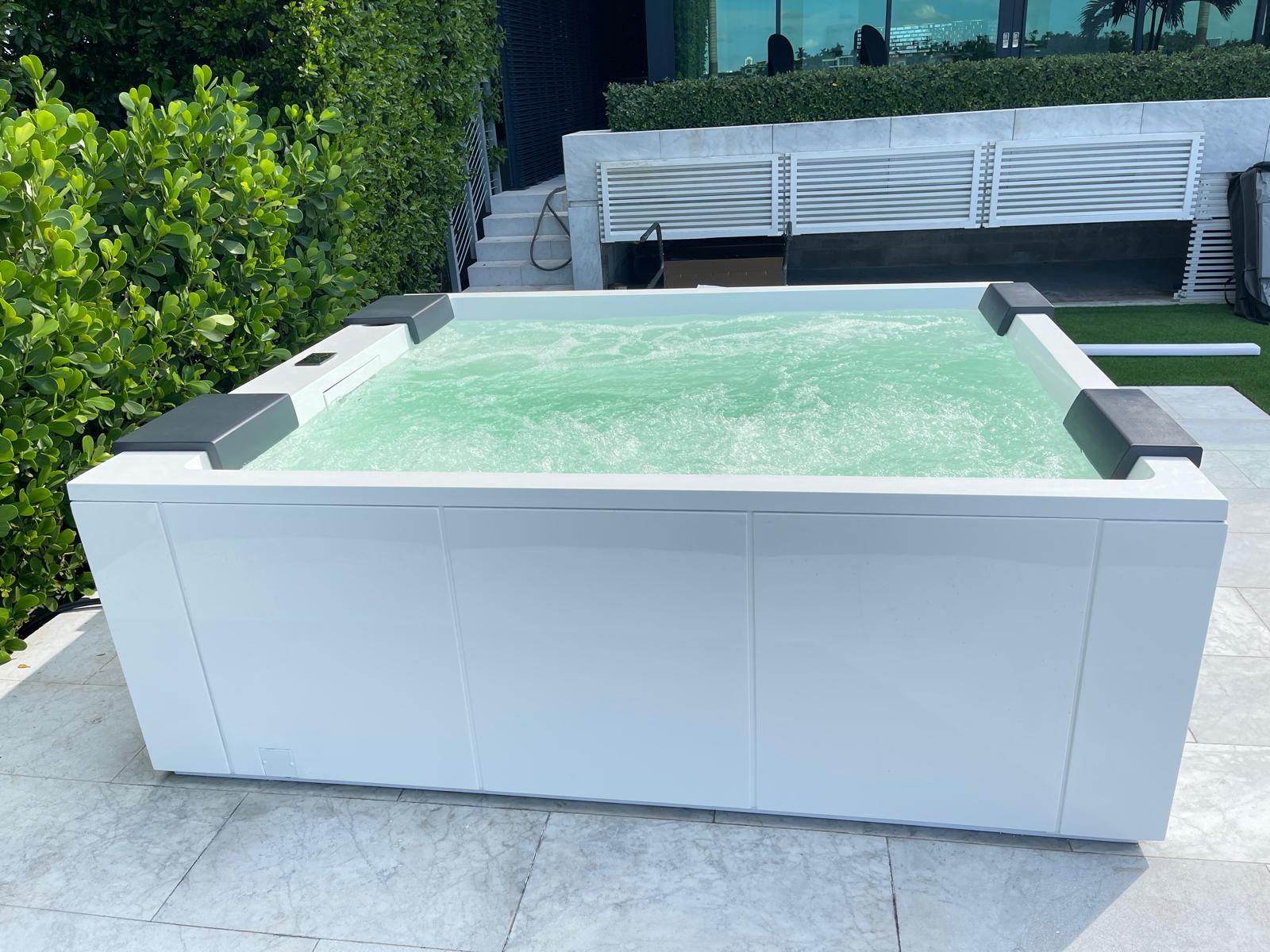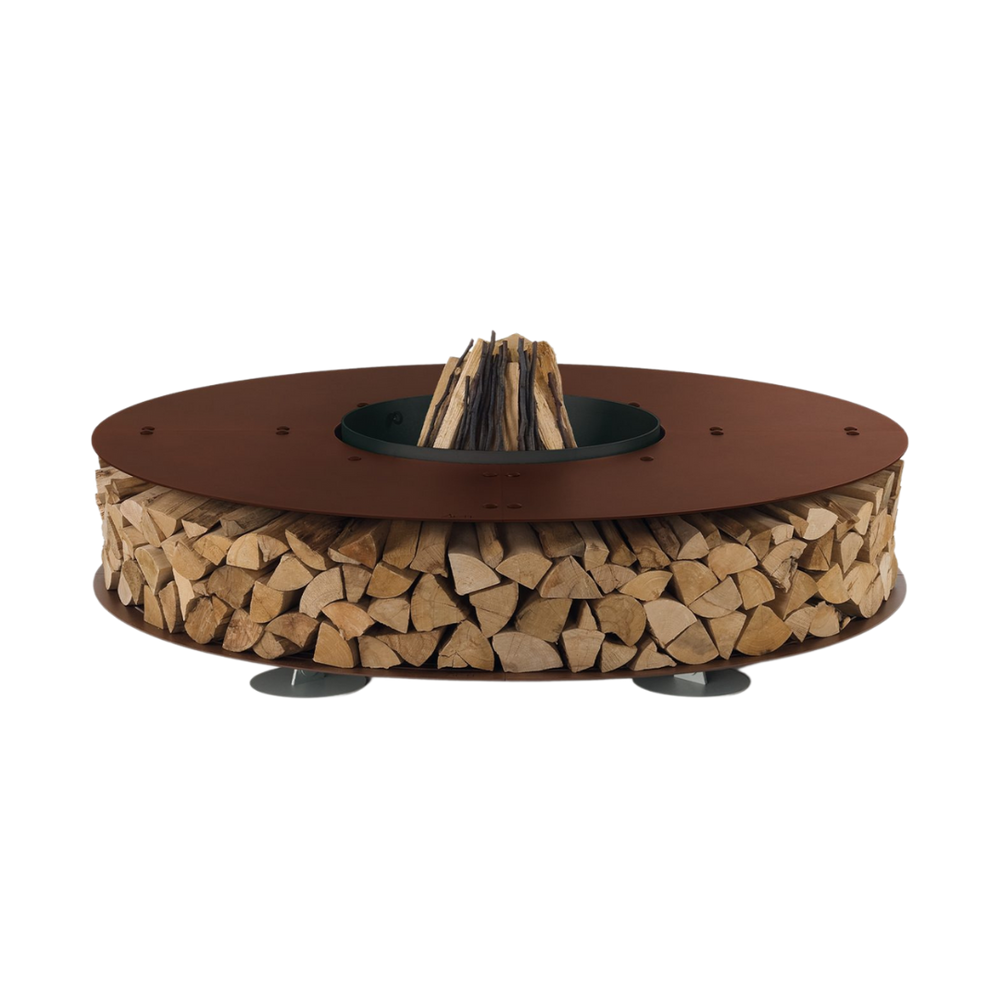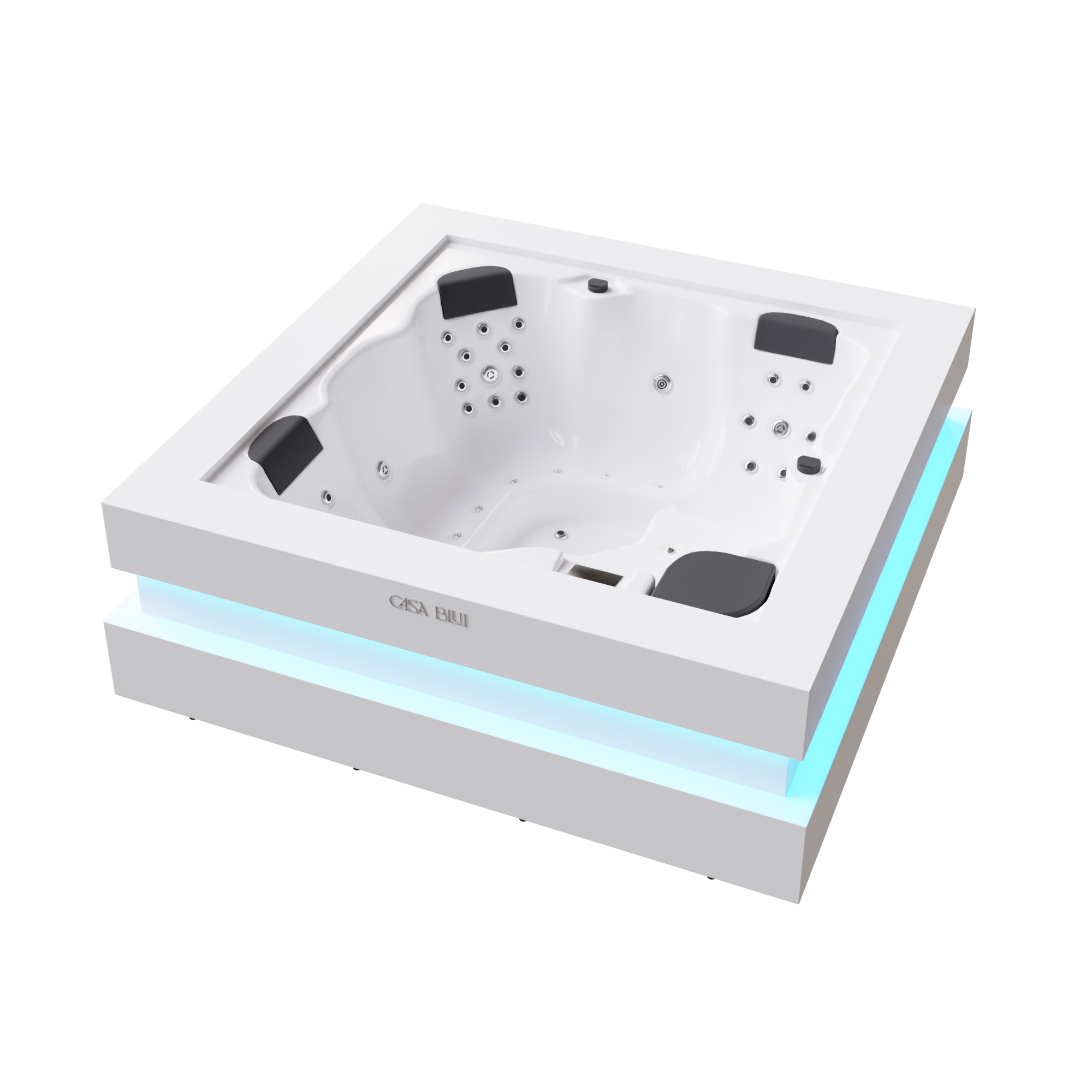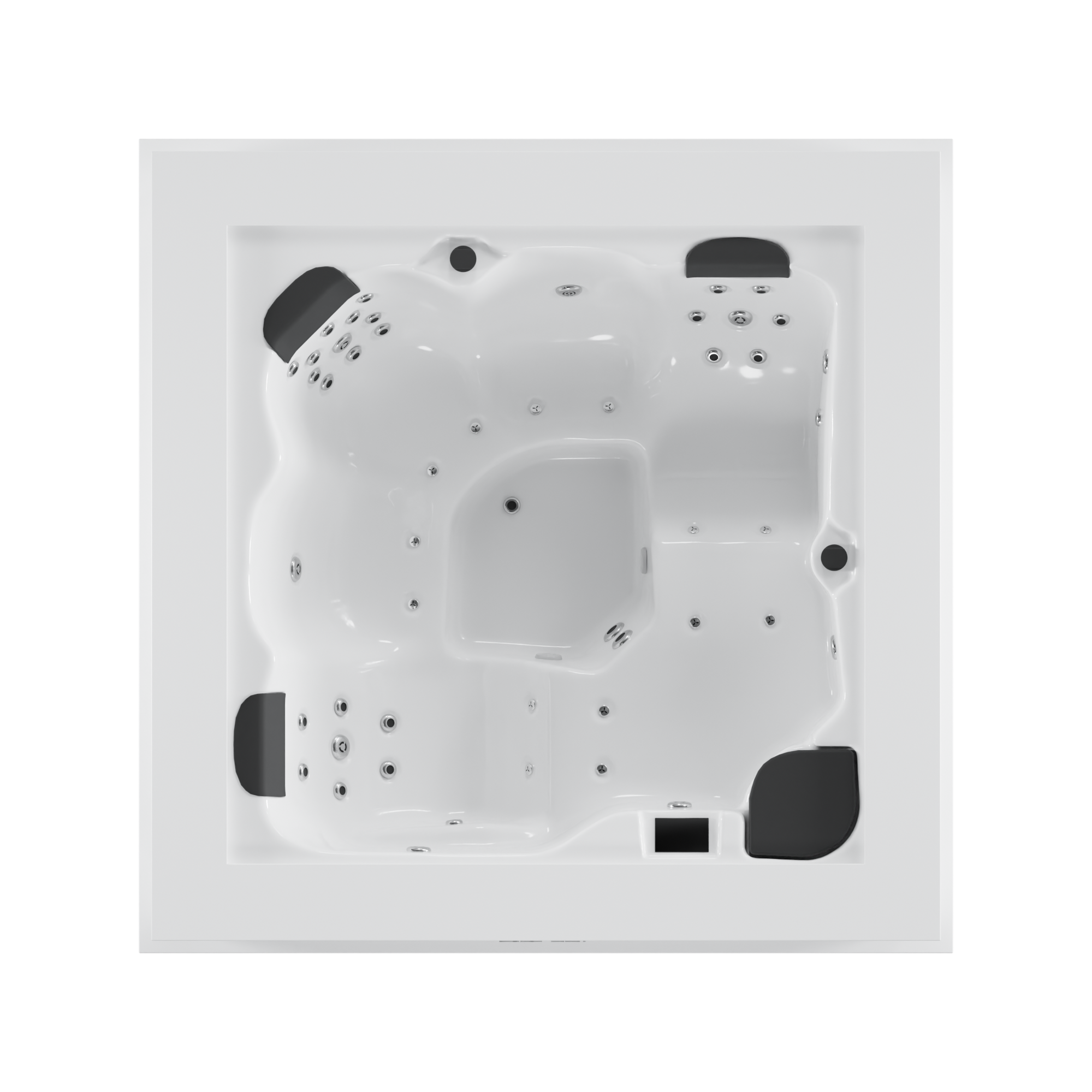Casa Blui Blog
Should You Use Your Hot Tub Before Bed?
By andrei newman

Do you need help getting a good night's sleep? You're not alone—according to the Centers for Disease Control and Prevention, one in three adults in the United States doesn't get enough sleep. As it turns out, the solution to your sleep problems is a hot tub in your backyard.
These home spas are a luxurious addition to your outdoor space, but they can also help you unwind and relax at the end of a long day, directly contributing to better sleep. From reducing day-to-day stress to soothing sore muscles, your luxury hot tub provides several physical and mental health benefits that directly affect your ability to sleep.
We'll explain these benefits in detail, starting with the interaction behind hot tubs and your body's natural temperature adjustment before bed.
The Science of Sleep & Hot Tubs
Sleep is a vital process that allows our bodies and minds to rest, repair, and rejuvenate – it's as essential to our survival as food, water, and oxygen. During sleep, our bodies go through various stages, including deep sleep and REM (Rapid Eye Movement) sleep, which are critical to our overall health and well-being. Sleep is so important that even billionaires use hot tubs for longevity and improved sleep quality.
When we enter deep sleep, our bodies release growth hormones and repair muscles and tissues, making it especially important for active individuals. Regular patterns of deep sleep also maintain and improve cognitive function, strengthen memories, and regulate immune system function.
On the other hand, REM sleep is associated with dreaming and plays a role in memory processing and emotional regulation.
So, how exactly does a hot tub fit into this sleep equation? Well, it all comes down to your human physiology.
When you enter a hot tub, your core body temperature spikes due to the ~100°F (32°C) water temperature. Shortly after that, your internal temperature drops rapidly as your body adjusts. This signals to your body that it's time for bed, so you often feel tired after getting out of hot tubs.
Your internal temperature naturally drops 1-2 degrees. At the same time, you sleep, so because sitting in a spa for a few minutes causes a similar drop, you've essentially "forced" your body to relax and go to sleep. This will cause you to fall asleep faster, which is especially beneficial for those who have insomnia or have trouble falling asleep quickly.
Furthermore, the relaxing feeling of soaking in hot tubs promotes the release of endorphins, the body's natural feel-good hormones. The increased blood circulation also promotes tissue recovery, offering much-needed relief from joint and muscle pain, especially chronic conditions like arthritis or lower back pain. Combining these hormones and reduced joint pain induces further relaxation, enabling you to fall asleep faster and stay asleep all night.
Sleep & Relaxation Benefits of Hot Tubs
Hot tubs do more than just help you unwind — they create the perfect environment for deep relaxation and better sleep. The hydrotherapy benefits of warm water and targeted jets work together to calm your body, reduce stress, and promote restful sleep. Let’s look deeper into the benefits:
Relieve Daily Stress
One of the most well-known benefits of using a hot tub is its ability to alleviate stress. The warm water and hydrotherapy jets create a soothing environment that actively reduces body and mind tension. As you soak in the hot tub, buoyancy, heat, and massaging jets relax your muscles, releasing endorphins and initiating a sense of calmness. Whether you're stressed after a long week of work, an exhausting day of training, or simply looking for a few moments of peace & quiet, a home spa can be your recluse to relax and prepare for bed.
Soothes Sore Muscles
Whether you're training for an IronMan or exhausted after 10+ hours on your feet, a hot tub can help melt that pain away. The warm water increases blood flow, delivering essential nutrients and oxygen to your muscles while removing waste products. The hydrotherapy jets further enhance this process by targeting specific areas of tension, especially your knees & lower back. The gentle massage eases muscle soreness and promotes faster recovery. With daily hot tub sessions, you'll notice a significant reduction in pain & stiffness, helping you sleep better and function better during the day. And suppose your home rental or Airbnb has a hot tub. In that case, your guests will enjoy relaxing in the mountains or exploring the city after a full day.
Relieves Pain
Hot tubs have been found to relieve various types of pain, including joint pain, arthritis, and chronic conditions. Hot tubs have benefits for athletes as well. The combination of warm water, buoyancy, and hydrotherapy jets helps to reduce pressure on joints, increase circulation, and promote the release of endorphins - all of which contribute to pain relief. By regularly using a hot tub, individuals suffering from chronic pain can experience reduced discomfort, improved mobility, and improved sleep quality.
Lowers Blood Pressure
High blood pressure, or hypertension, is a common health issue in older adults. Even with a nutritious diet and regular exercise, your blood vessel structure changes with age, and your arteries get stiffer, often increasing blood pressure. The warm water and hydrotherapy jets in the hot tubs facilitate better movement of blood and oxygen throughout your entire body, reducing stress and helping you relax before bed. Over time, this may improve your blood pressure readings and overall cardiovascular health. Hot tubs can be tax-deductible when prescribed by a doctor for medical conditions like hypertension.
Reduces Anxiety and Depression
Studies have shown that hot tub therapy can help reduce anxiety and depression, both of which can interfere with sleep. By promoting relaxation and reducing stress, hot tubs can help improve overall mental health and well-being, making it easier to fall asleep and stay asleep. The massage-like jets can also stimulate the release of endorphins, which are natural mood elevators that can help reduce anxiety and depression.
Tip: Combining hot tub therapy with cryotherapy can enhance these benefits by regulating stress hormones, improving circulation, and creating a powerful relaxation and recovery cycle.
Manage Diabetes
Over 10% of adult Americans have diabetes, and though a hot tub can't cure the condition, a home spa can help. A study from the New England Journal of Medicine reported that type-II diabetes patients who sat in a hot tub for 30 minutes per day for three weeks experienced lower mean fasting plasma glucose and glycosylated hemoglobin levels. Furthermore, the increased blood flow regulates insulin sensitivity. Another common health benefit of hot tubs is relaxation, which can reduce stress, which tends to harm blood sugar levels.
Suppose you're having trouble falling asleep, tossing & turning all night, and waking up feeling tired. In that case, your hot tub may be the secret add to your nighttime routine that you've been looking for. It can help you unwind after a long day, soothe sore muscles & tension, and induce your body's natural sleep response. And to fully reap these benefits, it's best to soak for at least 30 minutes just a few hours before bed. Afterward, continue your journey to bed by avoiding blue light and any strenuous activity.










